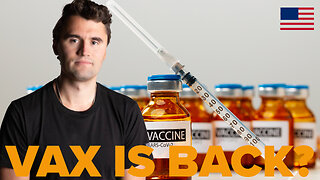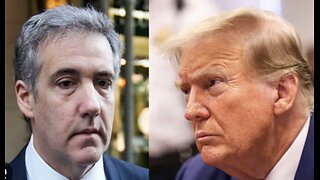'Microplastics' "The Hidden Health Crisis Nobody Is Talking About"
QUIT SMOKING OR VAPING NOW!!!!!!!!!!!!
Excellent eBook: QUIT SMOKING OR DIE!
https://www.barnesandnoble.com/w/quit-smoking-or-die-richard-renstone/1136998725?ean=2940164378936
'Microplastics' "The Hidden Health Crisis Nobody Is Talking About"
February 15, 2024. Particles, Health Crisis, Microplastics, Health, Wellness, Health Risks, Life On Earth, The Environment, Plastic, Toxins, Toxic, Particulates, Science, Manufacturing, Chemicals,
pollution, nature, ecosystems, cosmetics, clothing, food packaging, industrialization, processes, plastics, Biodegradable, Biodiversity, Food, Drinks, Snacks, Packaging, Shipping, innovation,
Microplastics aren't talked about a lot, but they could potentially be the largest health crisis of our future. So how bad is it and what can be done?
Microplastics are tiny plastic particles that are less than five millimeters in diameter and are classified into two categories: primary and secondary. They cause pollution by entering natural ecosystems from a variety of sources, including cosmetics, clothing, food packaging, and industrial processes. As the plastics begin to decompose, they end up shedding tiny particles known as microplastics. One study found these toxic particles in almost 90% of protein-rich foods. Microplastics are present in a variety of products, including cosmetics, plastic bags, and bottles, and many of these products readily enter the environment in wastes.
Sources:
https://docs.google.com/document/d/1SIT4EX_i3RQY-h6mnRptLeCeWgiv8bT2PqGaRljWksw/edit?usp=drivesdk
These evil United Nations World economic forum World Health Organization globalists always project what they have in store for humanity. Disease X is just the latest in a long category of slow kill to fast kill programs under the United Nations banner... Andre Corbeil.
Disease X is a placeholder name that was adopted by the World Health Organization (WHO) in February 2018 on their shortlist of blueprint priority diseases to represent a hypothetical, unknown pathogen that could cause a future epidemic. The WHO adopted the placeholder name to ensure that their planning was sufficiently flexible to adapt to an unknown pathogen (e.g., broader vaccines and manufacturing facilities). Director of the US National Institute of Allergy and Infectious Diseases Anthony Fauci stated that the concept of Disease X would encourage WHO projects to focus their research efforts on entire classes of viruses (e.g., flaviviruses), instead of just individual strains (e.g., zika virus), thus improving WHO capability to respond to unforeseen strains. In 2020, experts, including some of the WHO's own expert advisors, speculated that COVID-19, caused by the SARS-CoV-2 virus strain, met the requirements to be the first Disease X
-
 LIVE
LIVE
IrishBreakdown
1 hour agoNotre Dame Recruiting Hour: Gordy Sulfsted Commits, DL Recruiting Talk
815 watching -
 LIVE
LIVE
OFFICIAL Jovan Hutton Pulitzer Rumble
1 hour agoLooking Back On Lockdowns and Disruptions In Our Supply Chain and Lives
1,172 watching -
 17:29
17:29
Breaking Points
4 hours agoBREAKING: Iran President DEAD In Helicopter Crash, What's Next?
31.4K89 -
 LIVE
LIVE
Major League Fishing
4 days agoLIVE Bass Pro Tour, Heavy Hitters, Day 3
662 watching -
 LIVE
LIVE
The Shannon Joy Show
6 hours ago🔥LIVE W/Sasha Latypova! Commissioned By Pentagon-COVID Was An Inside Job & The Shots Are Bioweapons
1,052 watching -
 LIVE
LIVE
The Charlie Kirk Show
1 hour agoWhy the Vax is Back + Debate Prep + Cohen Robs Trump | Davis, Hassam-Nahoum, MacArthur | LIVE
9,708 watching -
 LIVE
LIVE
vivafrei
2 hours agoMichael Cohen STOLE from Trump! Liberal Gaslighters! Butker's Graduation Speech & MORE!
5,059 watching -
 1:02:22
1:02:22
The Dan Bongino Show
4 hours agoThe Dem's Secret Plot To Dump Biden (Ep. 2253) - 05/20/2024
284K882 -
 1:22:01
1:22:01
Benny Johnson
2 hours agoIT'S OVER: Trump Trial BOMBSHELL, Star Witness Admits He STOLE From Trump! Iran's President DEAD 🚨
27.9K78 -
 59:04
59:04
Steven Crowder
4 hours agoIran's President Dead in Helicopter Crash: Everything You Need to Know
193K323